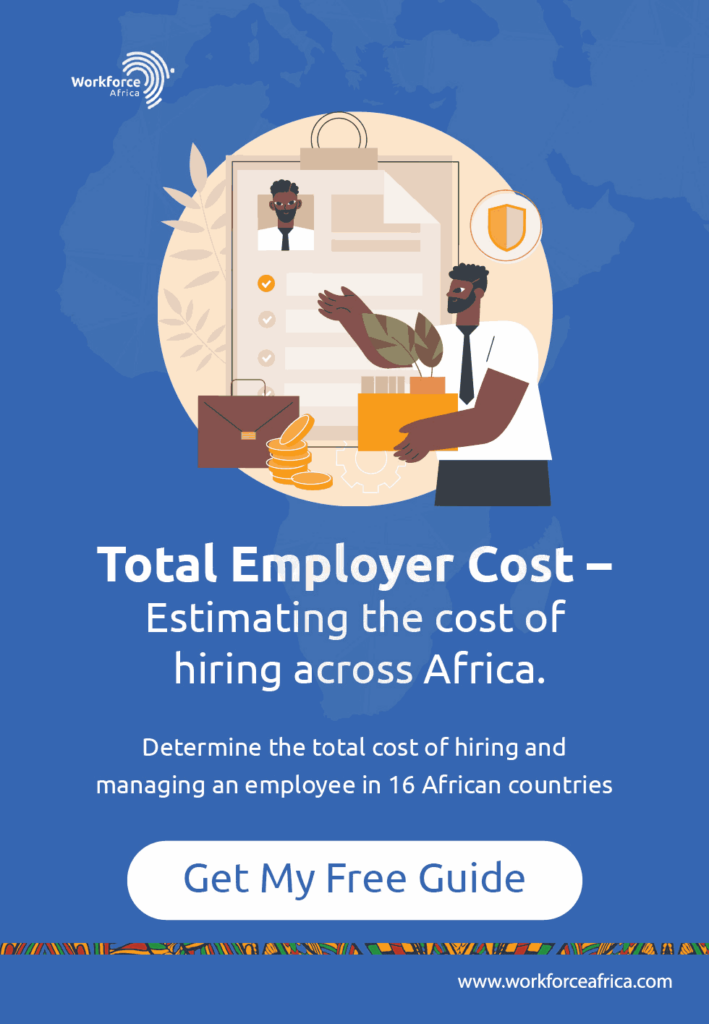
- hello@workforceafrica.com
- +234 816 305 6589
- +234 903 194 6744

With its skilled workforce and strategic location, Nigeria is an enticing destination for companies eyeing cost optimisation and talent access for round-the-clock global operations.
This article scrutinizes the nuances of outsourcing to Nigeria, analysing the benefits and potential pitfalls organisations should consider. With tips to avoid them when leveraging Nigeria's outsourcing landscape.
Offshore outsourcing to Nigeria presents many opportunities and challenges that organisations must carefully navigate.
With its growing economy, skilled workforce, and strategic location, Nigeria has become an attractive destination for companies seeking to optimise costs and access specialised talents.
However, like any outsourcing destination, Nigeria has its advantages and disadvantages.
This article will delve into the pros and cons of outsourcing to Nigeria, shedding light on factors organisations should consider when leveraging the Nigerian outsourcing landscape.
Nigeria’s economic potential is vast. From considerable resource endowment to a strategic coastal location and large internal market. Nigeria is an economic powerhouse in Africa. Yet, as a country, Nigeria has not yet realised its true potential.
Nigeria is diversifying the economy away from the oil sector to achieve sustainable development and keying into the nascent offshoring sector.
Regarding population, Nigeria is Africa’s largest nation, with an estimated population of over 213 million as of 2021 (World Bank, 2022) and over 50% of the population under 19 (Statista, 2022).
Nigeria's population makes up almost 47% of that of West Africa (Mercy Corps, 2023), and the World Bank estimates that in 2021, the country's GDP was above $504 billion.
According to estimates from the Nigeria Communications Commission for 2022, the country has a well-developed mobile telecommunications sector with 150 million Internet-connected phone lines out of the 206 million phone lines in the nation.
The Services sector, followed by Agriculture, is the most significant contributor to Nigeria's GDP.
The Nigerian economy is not only building competitive strengths to benefit from the free flow of investments and commerce but also strategically positioning itself as a top offshoring destination.
Global businesses are in a rat race in their quest for economies with less expensive labour, readily accessible skills, and knowledge to increase the profitability of the country.
Given its sizable youthful population and skilled talents, Nigeria now capitalises on this win-win situation for economic growth. The country reported over $285.8 million in combined domestic and international Global Business Services (GBS) for Africa in 2021.
According to The Guardian, the nation's offshoring market is expected to expand steadily, reaching $19.8 billion in 2023. The country is Africa’s largest economy by GDP ($448 Billion).
A well-established ICT sector lays an excellent foundation for developing the BPO industry in Nigeria. It is currently the largest on the continent. BPO companies employ about 16,540 people in Nigeria alone, a massive economic win.
Recommended Post: Top 11 Steps to Successfully Set Up a Business in Nigeria
For many reasons, offshoring to Nigeria comes with its peculiar benefits.
Nigeria boasts a large and diverse talent pool, strong English language proficiency, a high turnaround time for hiring, cultural alignment with Western partners, and cost-effectiveness.
The major reasons international firms choose to outsource are:
Upon outsourcing a task to a specific service provider or company, the responsibility for task execution shifts to them. Outsourcing practices vary significantly across different industry sectors.
Typical outsourcing activities include content development, IT services, virtual assistants, legal services, web design, human resource management, and technical/customer support.
While Nigeria is an ideal offshoring destination, it is instructive that organisations considering this strategic move weigh the pros and cons.
This is to make informed decisions that align with their business objectives and values.
Offshoring to Nigeria can be a strategic move for organisations that aim to optimize their operations. Let us analyze the pros of offshoring to Nigeria.
One of the primary advantages of outsourcing to Nigeria is the significant cost savings it offers.
Nigeria's labour costs are lower than developed countries, making it an attractive option for companies seeking to reduce expenses
Being Africa’s most populous nation, Nigeria comprises arguably some of the continent's most educated and skilled individuals.
By outsourcing to Nigeria, businesses gain access to a diverse talent pool with individuals with the necessary skills and qualifications to help their organisation scale.
Nigeria’s time zone allows companies round-the-clock coverage beyond regular working hours.
This advantage is particularly valuable for businesses serving customers in different time zones.
By offshoring certain roles to Nigeria, companies can ensure their customers receive prompt assistance and support, increasing customer satisfaction and loyalty.
Outsourcing to Nigeria allows businesses to scale their operations up or down as needed. This feature is especially beneficial for companies experiencing fluctuations in customer demand.
It offers a range of advantages, including cost savings, access to a diverse talent pool, time zone advantages, and improved scalability. All these benefits make Nigeria an attractive destination for businesses to optimise their operations and improve customer satisfaction.
Outsourcing to Nigeria could be the strategy that will turn the tide for your business. Despite the many benefits of outsourcing to Nigeria, there are a few landmines to watch out for.
Having identified the pros of outsourcing to Nigeria, we also consider the potential cons.
Nigeria faces infrastructure challenges, including unreliable power supply and limited transportation networks.These issues can impact operational efficiency and require careful consideration.
There are security challenges in some parts of Nigeria – these may pose concerns for offshoring. Companies must assess and mitigate potential risks to ensure a safe and secure working environment.
The time zone differences between Nigeria and client locations may affect real-time collaboration and communication. Effective scheduling and project management strategies are crucial to overcoming this challenge.
The regulatory system in Nigeria could be a bit complex. This is one of the reasons businesses must leverage offshoring service providers like Workforce Africa to help navigate these complexities.
Understanding and complying with local regulations and legal requirements is essential to avoiding complications
It can be challenging to maintain consistent quality standards across different geographical locations. it is ideal that you implement robust quality assurance processes to ensure service excellence.
If Nigeria is your next outsourcing destination, you should consider working with one of the leading offshoring partners in Africa, like Workforce Africa.
In a bid to make outsourcing to the country more advanced, various organizations have been established.
These include the Association of Outsourcing Practitioners of Nigeria (AOPN), the Nigeria Association of Information Technology Enabled Outsourcing Companies (NATIEOC), and the Outsourcing Development Initiative of Nigeria (ODIN) in collaboration with the World Bank and Interra Networks Limited.
Additionally, the Assessment of Core Competencies for Employability in the Service Sector (ACCESS Nigeria) has played a significant role.
Suggested Post: Employee Compensation in Nigeria: An Employer Guide
Outsourcing to Nigeria offers various advantages, including cost savings, a skilled workforce, and cultural compatibility.
However, a comprehensive assessment of the pros and cons is crucial for making informed decisions aligned with your organisation's overall interests.
Workforce Africa has consistently helped multinationals scale and expand their operations to Africa or leverage African talents;
They have the expertise and experience to help you scale those business objectives seamlessly. Schedule a consultation today